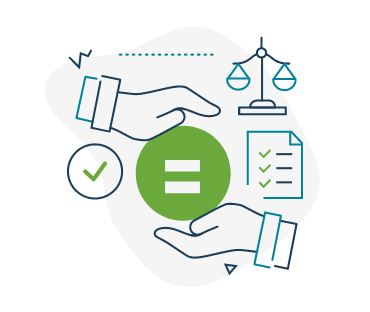Appeals


If you have been to Small Claims Court but you think the judge’s decision is wrong, you may want to appeal it. You can only appeal a decision from the BC Provincial Court if it is an order made after a trial (not one made during an application, for example). An appeal takes place in the Supreme Court of British Columbia. The process can be complex and there are specific filing deadlines. Pay close attention to each step and follow the instructions on the court forms.

Find a Form
-
Decide Whether to Appeal
You cannot appeal a BC Small Claims Court case just because you disagree with the decision. You must be prepared to explain why you feel the Small Claims Court judge made a serious mistake in your case. Not every error will lead to a successful appeal. The judge must have been clearly wrong.
To be successful on appeal you will have to show that the trial judge made one or more errors:
- An error in law: Meaning that they misapplied or misunderstood the law, or
- An error in fact: Meaning that they misunderstood the facts of the case
An appeal is very different from a trial because there is no new evidence allowed (without court permission) and there are no witnesses. An appeal is not a re-trial but a review of the original trial to see if the trial judge made a serious mistake.
Get Legal Advice
You don’t need a lawyer to appeal a court decision, but it is recommended that you get legal advice if you are thinking about appealing or have received a Notice of Appeal:
- Complexity: Supreme Court is more formal and complicated. Litigants are expected to be aware of the law and court procedures. Appeals require that you make legal arguments about an error in your case
- Costs if you lose or withdraw: Litigation in BC Supreme Court is generally more expensive than BC Provincial Court. Court fees are higher and their court transcripts can be expensive. Mostly importantly, if you are unsuccessful with your appeal, you may be required to pay the full cost of the other party’s legal fees. These costs can add up to far more than the $35,000 limit in Small Claims Court
- Strict deadlines: There are some very tight and strict deadlines you must follow if you want to file or respond to an appeal. If you want an extension you will have to make an application to the Supreme Court

Get Help
If you want to find a lawyer try the Lawyer Referral Service or Access Pro Bono

Learn More
How to appeal an order made in Small Claims Court from the Law Centre
-
File the Notice of Appeal
You will need to fill out the BC Supreme Court Notice of Appeal. Make sure to read the directions carefully. If you don’t have the Small Claims Court order, it is a good idea to get a copy of it. You can do this by going to the court registry and asking for a copy. There may be a photocopying fee.

Key Term
As the person filing the appeal you are the Appellant. The Respondent will usually be the other party or parties from the small claims trial will usually be the other party or parties from the small claims trial. Be sure to name all the individuals this case may affect

DIY Tools
Where to File
File the Notice of Appeal at the BC Supreme Court registry closest to where the Small Claims Court order was made. This must be done within 40 days after the Small Claims Court order was made. A Notice of Appeal must be filed with a copy of the standard set of directions attached. Once you file your Notice of Appeal with BC Supreme Court, on the same day, file a copy of it at the Small Claims Court registry.
What to File:
- Notice of Appeal at the BC Supreme Court registry (with attached standard set of directions) and pay the deposit/fees
- Copy of filed Notice of Appeal at the Small Claims registry

Find the Form

Fees
When you file your Notice of Appeal you will be asked to pay a fee and deposit.
Pay required BC Supreme Court fees and deposits:
- $200 to initiate a Supreme Court proceeding, plus
- A $200 deposit as security for costs that the court may order you to pay if you lose or discontinue the appeal. If you win, you will get this back
- The amount of the judgment ordered by the Small Claims Court if the order being appealed required you to pay a sum of money
If you are unable to deposit the security for costs or the amount of judgment as required, you may apply to the BC Supreme Court for an order to reduce these amounts.
If you are unable to pay the filing fee or any fees payable to the court pertaining to the appeal, you may apply to the court for an impoverished status order. Request the appropriate form from the Supreme Court Registry. Note that impoverished status does not cover the cost of transcripts as these fees are payable to private contractors.

Key Term
Impoverished status (previously indigent status) is granted when someone going through the court process cannot afford the court fees
Any order reducing the amount of security for costs ($200 deposit) or the amount to be deposited based on the Small Claims Court judgment must be served personally on each party affected by the appeal.

Read the Rules
Small Claims Act s. 5-15 - Appeals
Supreme Court Rule 18-3 Appeals
Standard set of directions for Small Claims Court appeals issued by the Chief Justice

Find the Form
Appeal from Small Claims - Supreme Court Forms package with instructions

Learn More
How to Appeal an Order Made in Small Claims Court from JES
How to appeal an order made in Small Claims Court from the Law Centre, and
Small Claims Appeal from the LSLAP manual
-
Serve the Notice of Appeal
Personally serve means either you or someone else gives the documents to the other party in person. You can hire a process server whose job it is to serve documents.
You should make a note of the time, date, and place where the documents were served. This information will be needed to prepare an Affidavit of Service. If you are unable to personally serve those needing to be served you can have a friend do it for you or a process server but they will need to fill out the Affidavit of Service.

Read the Rules
Supreme Court Civil Rule 4-3 - Personal service

Learn More
Appealing Small Claims Court Judgments from the JES
-
Transcripts
Order and pay for transcripts of oral evidence given at trial and the judge’s reasons for judgement.

Learn More
How do I order a transcript from Courthouse Libraries
File proof that:
- The Notice of Appeal has been served on respondents (Affidavit of Service)
- The transcript has been ordered

Read the Rules
Supreme Court Civil Rule 4-2 - Ordinary service
-
Set Hearing Date and Serve Notice of Hearing
Apply to the Registrar for a date for hearing the Appeal. The date needs to be set for at least 21 days after applying. You will need to pay the fee for this application. Once you are given a date you will need to fill out the Notice of Hearing of Appeal and serve it on the Respondent by ordinary service.

Find the Form
Notice of Hearing of Appeal (Form 75)
-
Statement of Argument (Schedule A)
Within 45 Days of filing the Notice of Appeal you will need to file and serve the Statement of Argument (schedule A). You will need to serve a copy of the filed Statement of Argument on the respondent by ordinary mail.
Apart from the transcript, the Statement of Argument is the main thing the appeal judge will consider. If you are appealing, you will need to lay out, in numbered paragraphs:
- Facts - for each fact you should reference the relevant page and line number in the transcript
- Issues - which part of the final order was a mistake
- Argument - why the order a mistake with reference to the facts of the case and caselaw
- Order - what order would you like the appeal judge to make including costs and payment of money out of court
-
Statement of Argument (Schedule B) - Respondent
The Respondent needs to file the statement of argument (Schedule B) and serve a copy on the appellant by ordinary service 14 days before the hearing.
If you are the respondent, your Statement of Argument is an opportunity to respond to the appellant’s arguments and view of the facts. Let the court know if you agree or disagree with each part of the appellant’s statement and why. Use numbered paragraphs and refer to the appellant’s arguments, the transcript, and case law where relevant.

Find the Form
-
Attend a Hearing
If you are successful in your appeal, the BC Supreme Court justice may allow you to recover your costs as part of the judgment. If you lose or discontinue the appeal, there may be additional costs awarded against you.

Read the Rules
Supreme Court Civil Rule 14-1 - Costs
Any proceedings to enforce the order in BC Small Claims Court are suspended until the appeal is dealt with, but you first must provide proof that you have started the appeal process.

DIY Tools
To make sure you’ve done each step see the Small Claims Appeal Checklist

Learn More
Appealing Small Claims Court Judgments from the Supreme Court of BC














